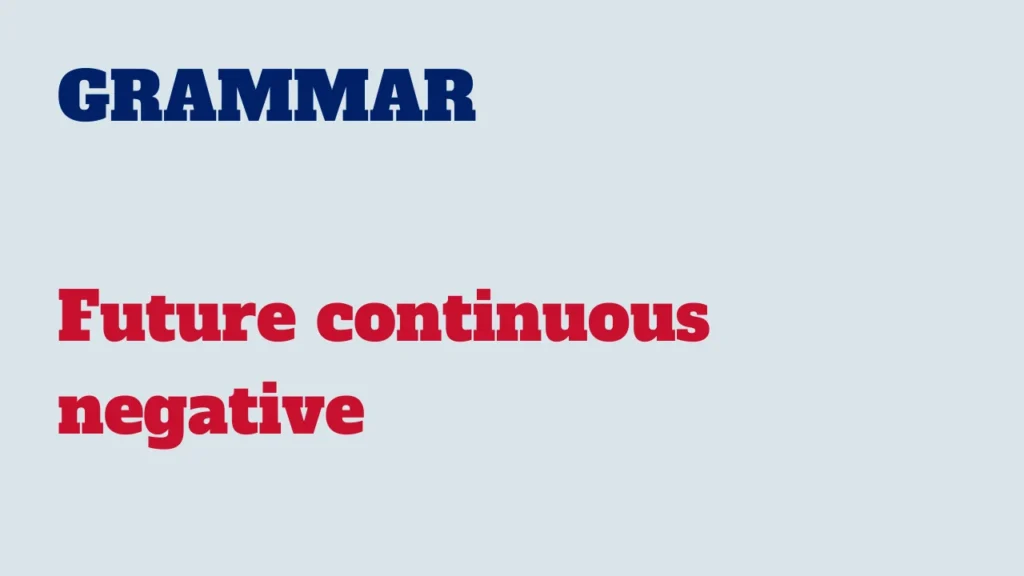In the future continuous tense, negative sentences are formed by using the auxiliary verb “will” followed by “not” (or the contracted form “won’t“) + “be“, and then the present participle (base form + –ing) of the main verb.

Here’s how to construct future continuous negative sentences:
Structure:
Subject + will not (won’t) + be + Present participle of the main verb (base form + –ing) + Complements or additional information
Examples:
I will not be studying for the exam tomorrow.
She won’t be working on the project all day.
We will not be waiting for the train at the station.
They will not be playing soccer in the park.
It won’t be raining heavily in the evening.
Table: Future continuous – negative
| Subject pronoun | Future continuous – negative | Examples |
|---|---|---|
| I | will not be + present participle | I will not be attending the conference next week. |
| You | will not be + present participle | You will not be working on the project tomorrow. |
| He/She/It | will not be + present participle | He will not be presenting at the meeting. |
| We | will not be + present participle | We will not be hiking in the mountains this weekend. |
| You (plural) | will not be + present participle | You will not be participating in the competition. |
| They | will not be + present participle | They will not be redecorating their restaurant next month. |
Usage of future continuous – negative :
Negating ongoing actions in the future:
Used to express that an action will not be in progress at a specific time in the future.
Example:
I won’t be attending the meeting next Monday.
Denying future plans or intentions:
Used to state that someone does not have plans or intentions involving ongoing actions in the future.
Example:
She won’t be participating in the event.
Expressing polite refusals:
Used to make polite refusals or declines regarding future activities.
Example:
He will not be joining us for dinner.
Referring to predicted future absence of actions:
Used to discuss actions that are predicted not to be happening at a certain time in the future.
Example:
It won’t be snowing heavily during the weekend.
A common mistake to avoid:
Incorrect: They will not playing soccer in the park.
Correct: They will not be playing soccer in the park. (Use “will not be” for the future continuous negative form.)
Understanding how to form and use future continuous negative sentences allows you to express the absence of ongoing actions that will not happen at a specific time in the future. Practice constructing negative sentences in the future continuous tense to enhance your language skills. Happy learning!



